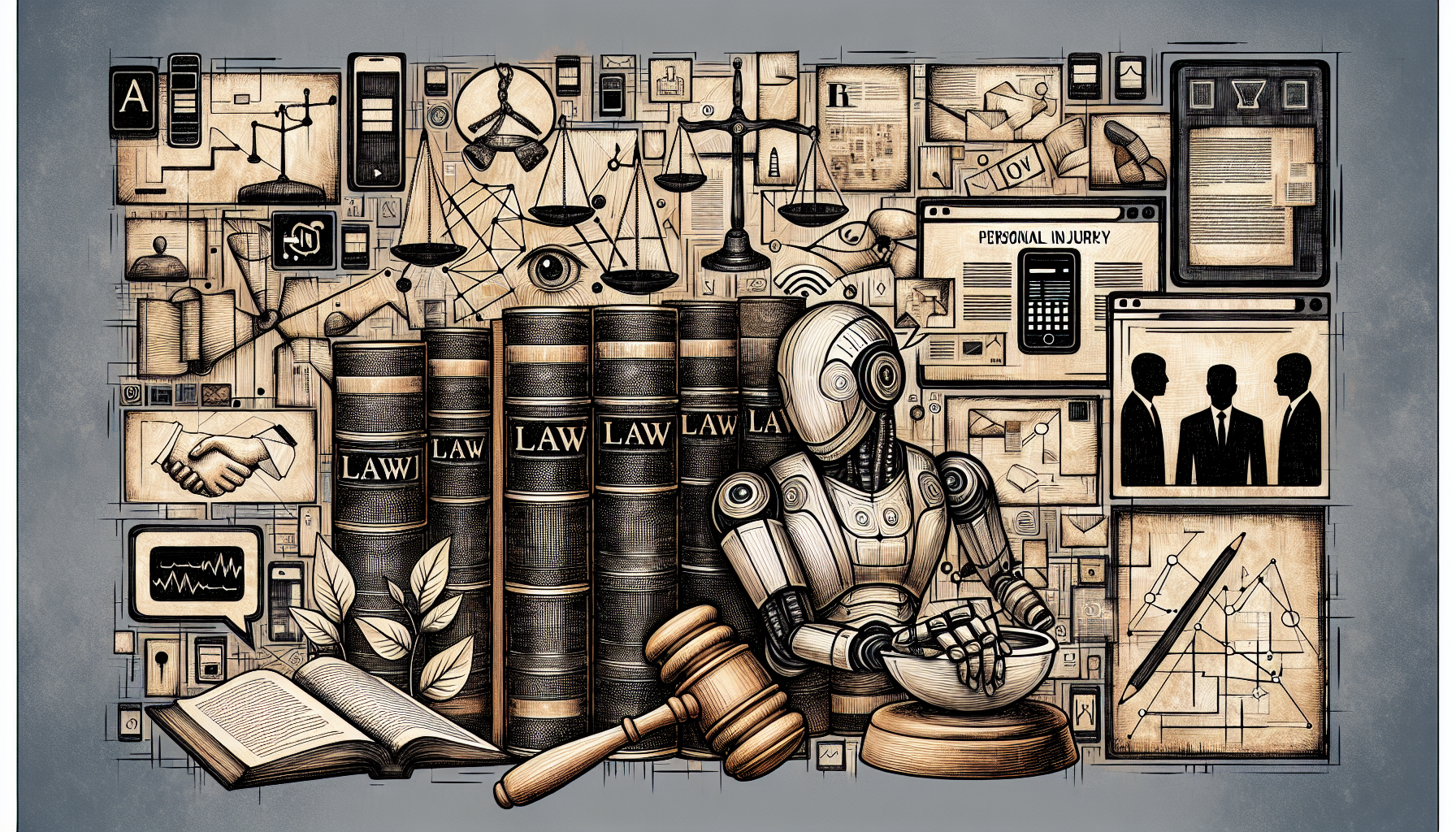
Setting the Context: Navigating Fiduciary Accountings
Fiduciary accounting plays a crucial role in the administration of trusts and estates. It involves a systematic record-keeping process to ensure that fiduciaries fulfill their legal and ethical obligations. These accountings provide transparency, enabling beneficiaries to understand how assets are managed and distributed. Preparing such documents requires meticulous detail, legal precision, and comprehensive financial understanding. This is often a daunting task, even for seasoned professionals.
The importance of accuracy cannot be overstated, as errors can lead to significant legal repercussions. As legal technology advances, new tools emerge to assist professionals in this complex landscape. This brings us to an exciting development: the integration of AI tools like ChatGPT. Before diving into how ChatGPT can be a game-changer, let’s explore the pivotal role played by paralegals in the realm of trusts and estates.
The Role of Paralegals in Trusts and Estates
Paralegals form the backbone of many legal operations, especially in trusts and estates. They assist attorneys in drafting legal documents, conducting research, and preparing fiduciary accountings. Paralegals ensure that all documents comply with relevant laws and regulations, maintain organized records, and serve as a crucial point of contact for beneficiaries and other stakeholders.
In the realm of trusts and estates, their responsibilities often include:
- Gathering and organizing financial data
- Preparing detailed accountings and reporting
- Maintaining compliance with state and federal regulations
- Communicating with beneficiaries and managing inquiries
The volume and complexity of tasks require paralegals to be proficient in handling a wide array of data, emphasizing the need for efficiency and accuracy. Enter ChatGPT and other large language models (LLMs), emerging technologies designed to streamline and enhance these tasks, making the lives of paralegals notably easier.
Also read:
Introducing ChatGPT and LLMs: A Game-Changer for Paralegals
ChatGPT, developed by OpenAI, is a prime example of how large language models can revolutionize the legal field. With its ability to generate human-like text based on vast datasets, ChatGPT can assist in drafting documents, conducting legal research, and even providing initial answers to complex queries. For paralegals working in trusts and estates, this tool can significantly reduce the time spent on routine tasks.
Here are some key ways ChatGPT can be leveraged:
- Drafting Assistance: Generate initial drafts of fiduciary accountings and other documents, ensuring consistency and accuracy.
- Data Management: Help organize and analyze financial data, identifying trends and discrepancies that might require further review.
- Legal Research: Provide quick access to relevant legal precedents, statutes, and regulations, facilitating faster decision-making.
Utilizing LLMs like ChatGPT allows paralegals to focus on more nuanced aspects of their work, potentially transforming their roles from purely supportive to more strategic. The integration of such technologies can help legal teams operate more efficiently and effectively, setting a new standard for performance. However, these benefits come with their own set of challenges, especially when it comes to drafting fiduciary accountings.
Also read:
Key Challenges in Drafting Fiduciary Accountings
Despite advancements in technology, drafting fiduciary accountings remains a complex and detail-oriented process. Several challenges persist, including:
- Accuracy: Ensuring that all financial data is meticulously recorded and verified to prevent discrepancies.
- Compliance: Staying up-to-date with ever-changing legal regulations and standards across different jurisdictions.
- Communication: Clearly communicating accounting results to beneficiaries who may not be familiar with legal jargon.
- Time Management: Balancing the workload to meet tight deadlines without compromising on quality.
Addressing these challenges is crucial for maintaining trust and transparency in fiduciary relationships. This is where ChatGPT can present solutions through carefully crafted prompts tailored to the needs of paralegals involved in trust and estates administration.
Also read:
Leveraging ChatGPT: Crafting Nuanced Prompts
To maximize the potential of ChatGPT, it is essential to craft nuanced prompts that yield precise and useful outputs. Here are some examples and techniques:
- Generating Initial Drafts: Providing clear instructions about the structure and content can help create a strong first draft.
Example Prompt: “Draft a fiduciary accounting report for trust #1234 for the fiscal year 2023, including sections on income, expenses, distributions, and a summary.”
- Data Verification: Instruct ChatGPT to cross-check data entries against a provided dataset.
Example Prompt: “Compare the following transaction entries against the attached financial dataset and identify any discrepancies.”
- Legal Compliance: Using ChatGPT to ensure documents comply with specific regulations.
Example Prompt: “Review this fiduciary accounting draft and highlight any areas that do not comply with California state regulations.”
Crafting specific and clear prompts is crucial for obtaining high-quality outputs from ChatGPT. By iterating on prompt design, paralegals can fine-tune the responses to better suit their needs, thus harnessing the full potential of the technology to assist in fiduciary accounting tasks.
Also read:
Techniques for Enhanced Efficiency
In addition to leveraging well-crafted prompts, several techniques can further enhance efficiency in fiduciary accounting:
- Automation of Routine Tasks: Use ChatGPT to automate the generation of recurring sections of fiduciary accountings, such as standard disclaimers or financial summaries.
- Template Creation: Develop templates within ChatGPT for different types of fiduciary documents to ensure consistency and save time.
- Batch Processing: Process multiple datasets or document requests in batches, allowing ChatGPT to perform large-scale data analysis and documentation generation.
- Integration with Other Tools: Combine ChatGPT with financial software and legal databases to streamline data import and export processes.
Implementing these techniques not only improves the speed and quality of fiduciary accounting but also allows paralegals to allocate more time to critical thinking and client interaction. This leads to a highly efficient workflow where technology and human expertise complement each other seamlessly. Yet, as we embrace these advancements, we must not overlook the ethical considerations and the need for accuracy in this sensitive area.
Also read:
Ethical Considerations and Ensuring Accuracy
While ChatGPT offers numerous benefits, it is imperative to address ethical considerations and ensure the accuracy of its outputs. Paralegals must exercise due diligence in verifying the information generated by AI, as they remain responsible for the final documents. Here are key points to consider:
- Verification: Always cross-check AI-generated data with original sources to ensure accuracy.
- Confidentiality: Maintain the confidentiality of sensitive information by adhering to strict data privacy protocols.
- Transparency: Inform clients about the use of AI tools and the measures taken to ensure data accuracy and security.
By maintaining a vigilant approach, paralegals can leverage ChatGPT effectively while upholding the highest ethical standards. This balance of technology and ethics provides a robust framework for efficient and accountable fiduciary accounting practices.
Also read:
Wrap-Up: Future Prospects and Continuous Improvements
The future of fiduciary accounting for trusts and estates looks promising with the integration of tools like ChatGPT. As AI technology continues to evolve, we can expect even greater enhancements in efficiency and accuracy. Paralegals and legal professionals who embrace these advancements will be well-positioned to provide superior service and adapt to the ever-changing legal landscape.
Continuous learning and adaptation are key. As we progress, the symbiotic relationship between human expertise and artificial intelligence will undoubtedly pave the way for more innovations, setting new benchmarks for excellence in fiduciary accounting practices.


